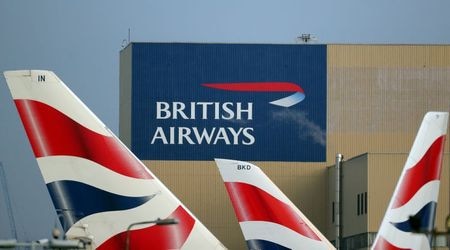British Airways’ profits take off as IAG enjoys bumper summer

British Airways owner IAG has posted record-level third quarter results as demand for European holidays flies up and fuel costs dip.
Operating profit in the quarter rose to €1.7bn (£1.5bn), up from €1.2bn (£1bn) in the same period last year, and operating margin increased 3.6 per cent thanks to strong holiday demand, especially to European destinations.
Profits at British Airways alone topped £600m in the period, whilst Vueling – the group’s low cost offering, enjoyed record profits of nearly £250m.
At BA, IAG said “further investment in stabilising operations, despite a challenging external environment and supply chain constraints, and a more resilient performance expected over the winter.”
The aviation giant successfully navigated turbulence including an air traffic control failure which effectively shut UK airspace for a period during peak times, as well as a host of natural climate disasters across the continent which affected air travel.
Fuel unit costs for the quarter were down 6.2 per cent year on year.
Luis Gallego, International Airlines Group’s chief executive, said: “This quarter represents a record third quarter performance for IAG. This is allowing us to invest in the business and reduce a significant amount of our debt.
“During the third quarter we saw sustained strong demand across all our routes, in particular the North and South Atlantic and in all leisure destinations around Europe,” he said in a market update this morning.
But despite the sky-high earnings, IAG shares dropped as much as three per cent when the market opened on Friday. Towards the end of the day they were down less, around 0.4 per cent.
Analysts say investors could be worried about the chillier months with business travel still slow, leisure demand tapering and the conflict in the Middle East threatening to bump up jet fuel prices.
“Of particular concern to the industry are rising tensions in the Middle East,” said Roberto Rivero, market analyst at Admirals.
“As well as the humanitarian crisis which is unfolding, a regional conflict could destabilise oil supply, pushing up the price of oil and, consequently, jet fuel. Jet fuel accounts for roughly 30% of an airline’s operating costs, so high prices are a serious impediment to profitability,” he explained.
Rivero added that the recovery of business travel since the pandemic has been “sluggish” and will concern investors, “particularly ahead of the winter months, when leisure travel typically dies down.”
The optimism “hasn’t reached the end of the runway yet”, agreed Sophie Lund-Yates, lead equity analyst at Hargreaves Lansdown.
“A pivot has taken place in the travel sector since the pandemic, in terms of its importance to consumers, but that doesn’t mean we aren’t going to see knocks to performance.
“Further information on how next year’s summer bookings are shaping up will be the most important barometer in understanding how far the current round of consumer confidence can carry this aviation giant,” she added.